23 Jun 2025
9 MIN READ
How Did The Hague Become a Center for International Law?
Summary
The Hague has been a symbol of legal diplomacy, and its current role as host to international organisations is part of a tradition dating back more than 750 years. It stands as the “Legal Capital of the World.”
Of the six principal organs of the United Nations, this is the only one not located in New York (USA). The "International City of Peace and Justice" assists in settling disputes, prosecuting war crimes, and promoting international law. But how did this Dutch city become so important?
What guided the strategic rise of The Hague to become the International Law Capital of the World?
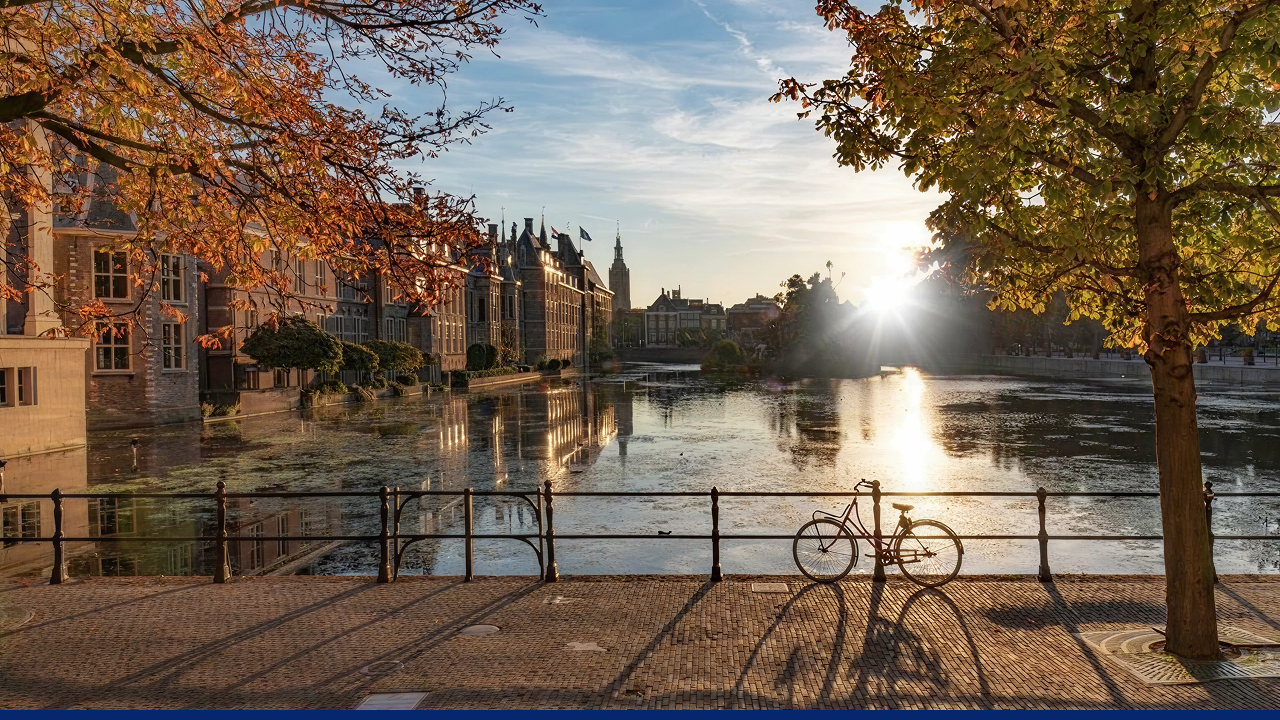
Peaceful view of The Hague City. Credits: World Forum, The Hague
Why was The Hague chosen for legal diplomacy?
The Hague has become a center for legal diplomacy and international law, both symbolically and historically. It held a strong tradition of political neutrality in its foreign policy, particularly during the 19th and early 20th centuries when major powers sought venues for dispute resolution.
These early peace efforts paved the way to the First Hague Peace Conference in 1899 and the Second in 1907. Both major international gatherings were held in The Hague, aiming to promote disarmament and peaceful conflict resolution. The support from the Dutch government and its continued hosting of legal institutions
What are the Netherlands’ diplomatic roots?
The Netherlands had some of the best infrastructure at the time, due to its empire's wealth and strong reputation in business. The Dutch later learned to embrace openness and diplomacy in their culture.
Their rich history of maritime trade contributed to their appearance as a peace-oriented nation despite being a colonial power. The need for a neutral ground for arbitration became clear as global conflicts grew, making it a safe and logical choice for international legal diplomacy.
Key Figures Who Set the Foundations of The Hague’s Legal Legacy
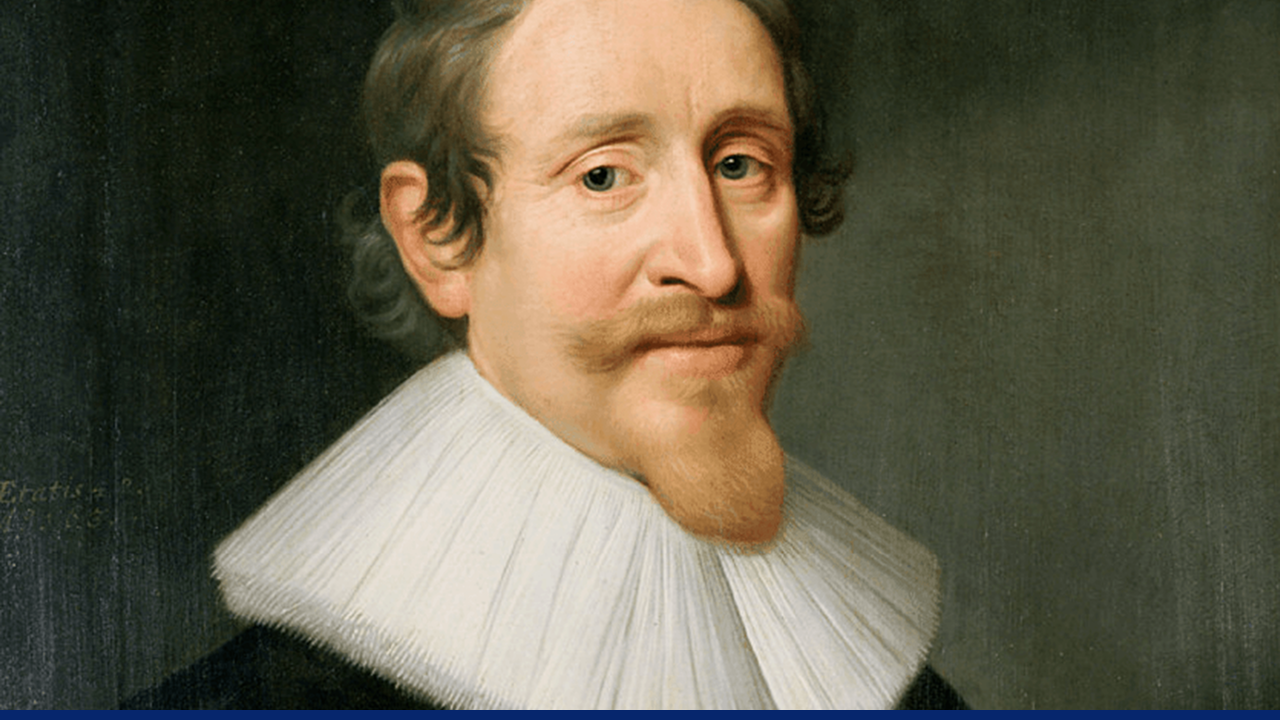
Hugo Grotius (1583-1645). Credits: Attorney at Law Magazine
Hugo Grotius: The Father of International Law (1583-1645)
Hugo Grotius is a key Dutch political figure in legal theory and has historically been regarded as the “Father of International Law”. He was an extremely gifted young prodigy who was admitted to Leiden University to study law at the age of 11. Grotius went on to become more than just an attorney; he was a statesman and diplomat.
His best-known work, De Jure Belli ac Pacis, outlines the principles of natural law and just war, laying the foundation for modern international law. His works continue to influence legal institutions today.
Who is Baruch Spinoza? (1632 - 1677)
Spinoza is another key Dutch-Jewish thinker who contributed significantly to Enlightenment thought, which had a profound impact on international legal philosophy. Although he wasn't directly involved in the legal system. His philosophy promoted rationalism, secular governance, and human rights, shaping the legal norms that supported The Hague's rise as a legal capital.
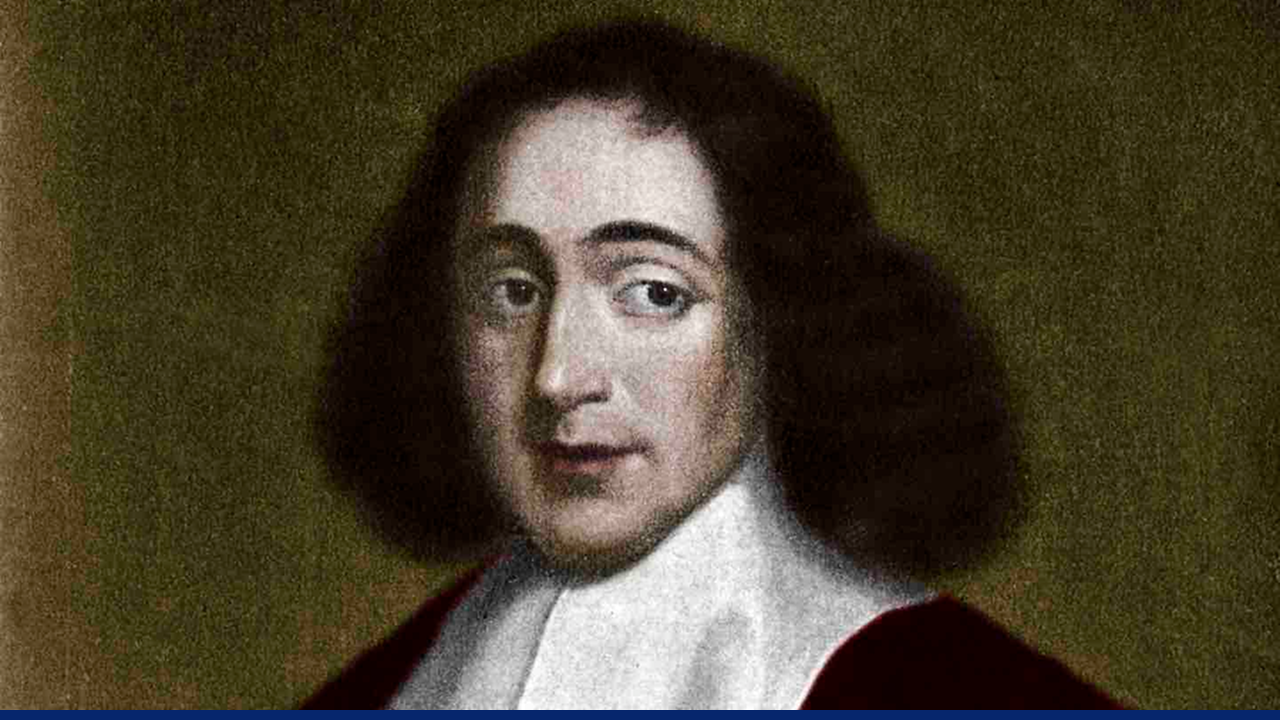
A portrait of Benedict (Baruch) Spinoza, 1754. Credits: The Nation
Other Key Intellectuals Who Paved The Way to The International City of Peace & Justice
In 1898, Tsar Nicholas II of Russia proposed an international conference aimed at promoting peace and disarmament among countries, which ultimately led to the First Hague Peace Conference. In 1899, he became the initiator of the Peace Conference, and his call for international dialogue laid the basis for strong legal diplomacy.
Another intellectual to get on board with the Conference that same year was Andrew Dickson White, American diplomat and co-founder of Cornell University, who served as the U.S. delegate at the First Hague Peace Conference. He strongly advocated for the Permanent Court of Arbitration.
Tobias Asser, Dutch jurist and Nobel Peace Prize laureate, helped shape cross-border civil and commercial legal cooperation. He was a driving force behind the Hague Conference on Private International Law (HCCH) in 1893.
Often called the “Mother of the Peace Movement”, Bertha von Suttner, an Austrian pacifist and the first woman to receive the Nobel Peace Prize, was the woman who lobbied international leaders and diplomats that urged them to establish legal institutions for peaceful dispute resolution. This indirectly supported the vision that led to the Hague Conferences.
What were The Hague Peace Conferences and the International Hague Convention?
What were the 1899 and 1907 Peace Conferences?
The Hague Conventions are a series of international treaties negotiated at the two landmark Peace Conferences. These conferences aimed to codify international law and establish peaceful dispute resolution mechanisms. Tsar Nicholas II played a significant role in initiating the first one.
The first conference in 1899 saw hundreds of delegates from 26 participating countries, laying the groundwork for the "International Hague Convention." The goal was to promote peace and limit armaments.
The Permanent Court of Arbitration (PCA) was established during the first Hague Peace Conference in 1899 and offered arbitration and other forms of dispute resolution for states and private parties. It is the first permanent institution for resolving international disputes.
While the second peace conference in 1907 was organised to expand on the 1899 conventions. However, a conference was planned in 1915, but it was derailed by the outbreak of the First World War, during which the Netherlands remained neutral. The Netherlands remained neutral until the outbreak of the Second World War.
What is The Hague Academy for International Law: A Legal Powerhouse
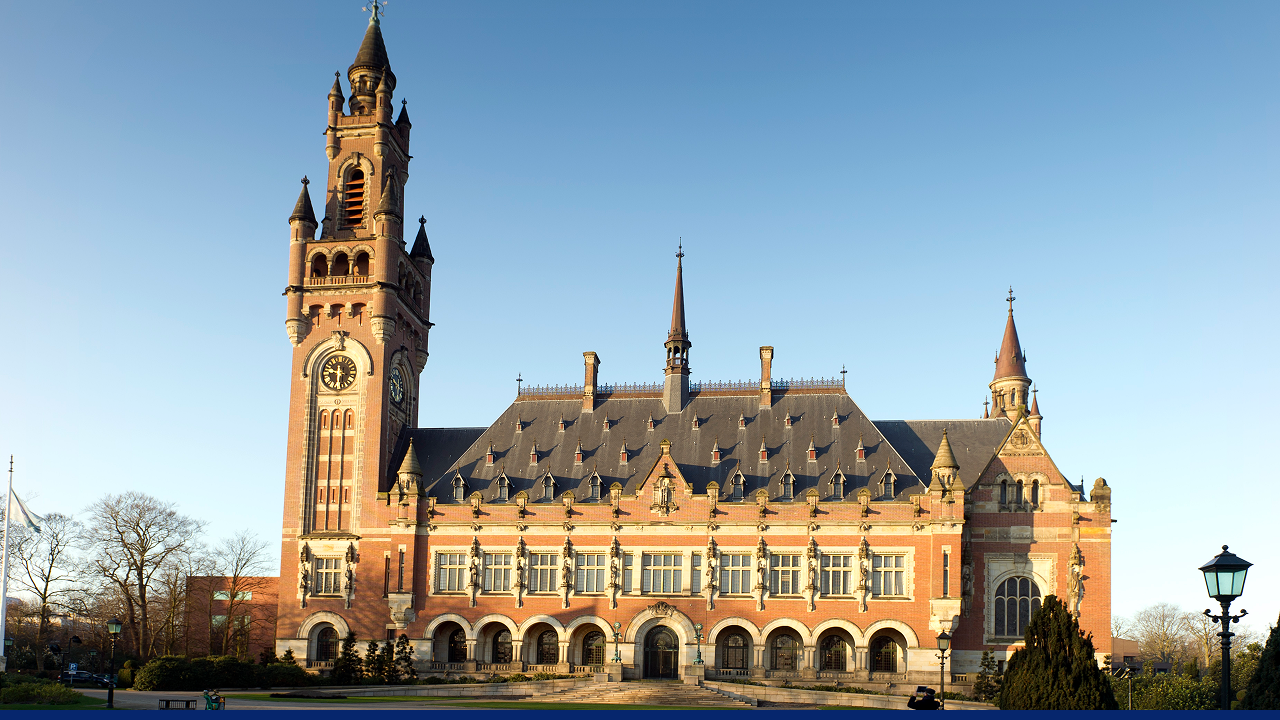
The Hague Academy of International Law. Credits: The United Nations Academic Impact (UNAI)
History and journey to the founding of the Hague Academy
Inspired by the idea of creating a global legal education center to support peace and diplomacy, the Hague Academy, founded in 1923, was established to promote the study and teaching of international law. Backed by the Carnegie Foundation, the academy opened its doors inside the Peace Palace - home of the International Court of Justice.
The Academy promotes the study of "Hague International Law" through advanced training for scholars, practitioners, and students worldwide. It offers summer and winter courses in private and public international law. Though it doesn’t grant degrees, it remains a leading institution shaping generations of legal minds.
What is The Hague World Court?
Difference between the International Court of Justice (ICJ) and the International Criminal Court (ICC)
The Hague is also known as the International Court of Justice (ICJ). The UN charter established the ICJ in 1945. The ICJ is the UN's principal judicial organ and continues the mission of earlier courts. It is located in The Hague’s Peace Palace, where it resolves legal disputes between countries and offers advisory opinions on legal questions.
Its binding decisions strengthen the global status of "Hague international law." The UN General Assembly, Security Council, and other UN agencies can also request the ICJ’s legal opinions on international questions. Hence, the Hague is called “The World Court”.
The ICJ has 15 judges elected for 9-year terms by the UN General Assembly and Security Council. The judges represent the global legal systems and regions. The court operates in English and French as official languages.
However, the ICJ is distinct from the International Criminal Court (ICC). While the ICJ handles disputes between states, the ICC prosecutes individuals for crimes like war crimes and genocide.
Permanent Court of International Justice (PCIJ)
Formed in 1922 under the League of Nations, the PCIJ was based in the Peace Palace. Although it ceased operations after World War II, it served as a prototype for the International Court of Justice (ICJ). The PCIJ took on many important cases, reinforcing The Hague’s role in international law. It laid the groundwork for establishing the International Court of Justice (ICJ).
The Hague is a legal epicenter with over 160 International Organizations
The Hague has over 160 international organizations that play key roles in legal and diplomatic matters. Aside from the above, it hosts the Organisation for the Prohibition of Chemical Weapons (OPCW), Europol, and the International Residual Mechanism for Criminal Tribunals (IRMCT).
Each institution deals with international law, from prosecuting war crimes to enforcing treaties. These organizations cement The Hague's status as a vibrant center of global governance. Over 180 nationalities live in the Hague. This is not only due to the international organizations, but the Hague, along with neighboring Rotterdam, is a significant business center due to being a large port city in Europe.
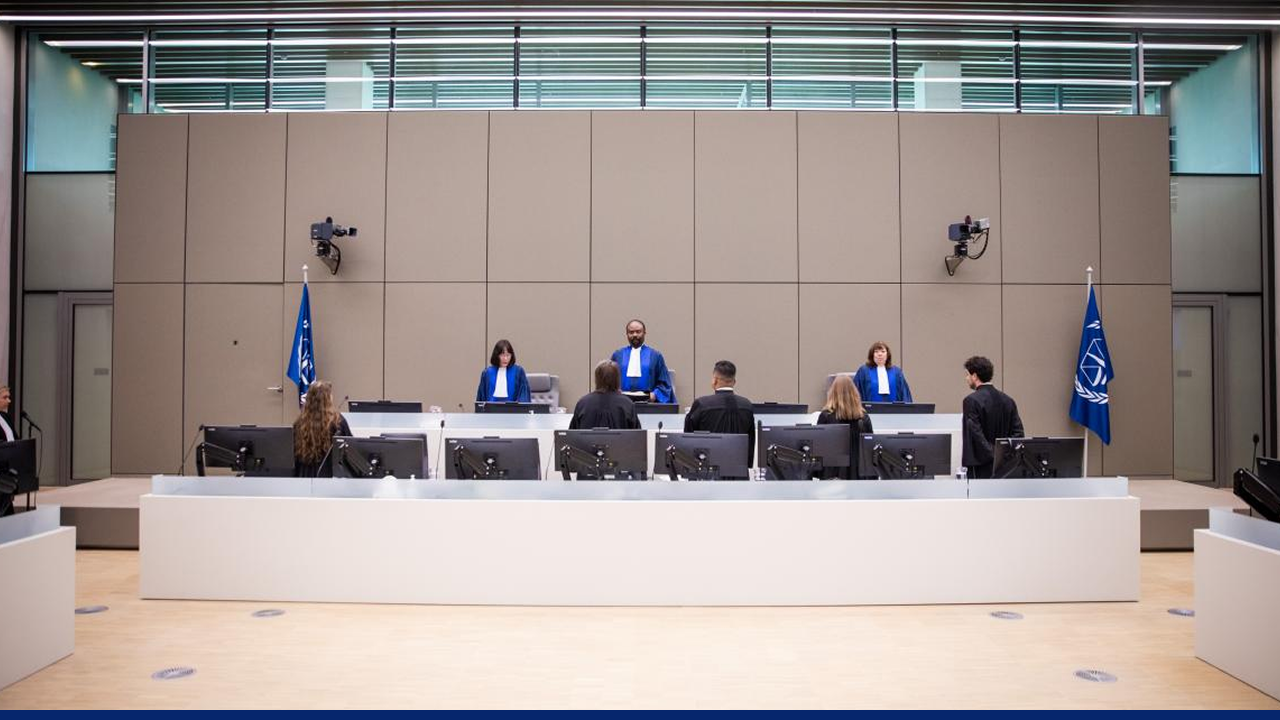
ICC Trial Chamber X to deliberate on the Al Hassan case. Credits: International Criminal Court
Conclusion: The city’s role in defending peace and justice worldwide
The Hague is more than a location; it represents humanity’s quest for justice through law. As global challenges evolve, The Hague is ready to face them. While some areas of its body need reform and scaling, it is a valuable mechanism for attempting to put order in the world. While its institutions are rooted in legal tradition and moral philosophy, its central role in international law needs to be adapted to ensure greater effectiveness and impartiality.
People also ask
Why are there international courts in The Hague?
The Hague is known as the legal capital of the world and the International City of Peace and Justice.
What makes The Hague special?
It is a global hub for international law, peace, and justice, serving as the Netherlands' administrative capital and the Dutch government's seat. It's home to numerous international organizations like the International Court of Justice and the Permanent Court of Arbitration.
How did The Hague start being the center of administration?
From the 13th century onward, the counts of Holland used The Hague as their administrative center and residence when in Holland.
What is the Hague Conference for the Codification of International Law?
The Hague Conference for the Codification of International Law, held in 1930, was the first international conference dedicated to codifying international law.
Why was The Hague chosen for peace?
Since it is an accessible location with a history of neutrality.
